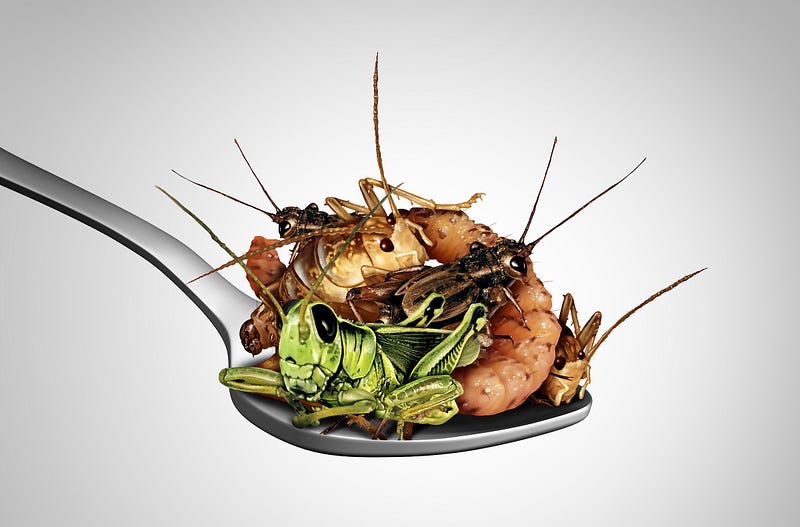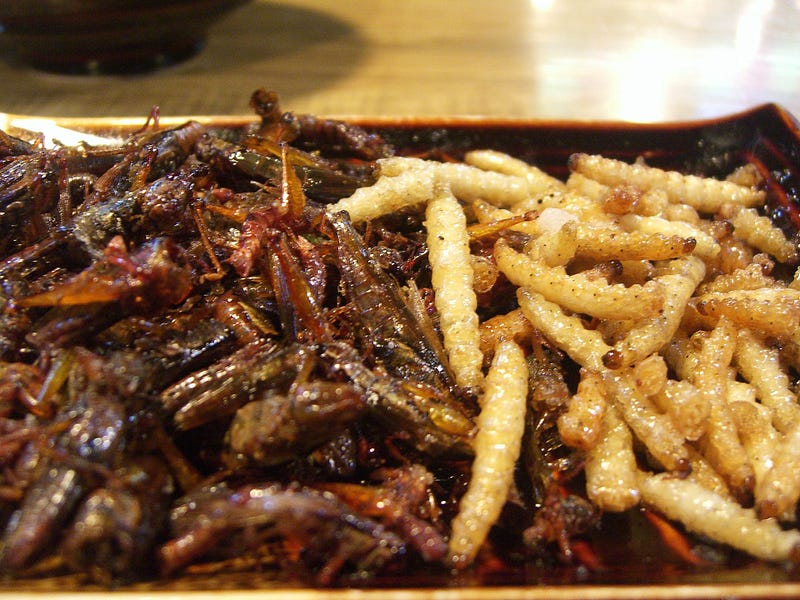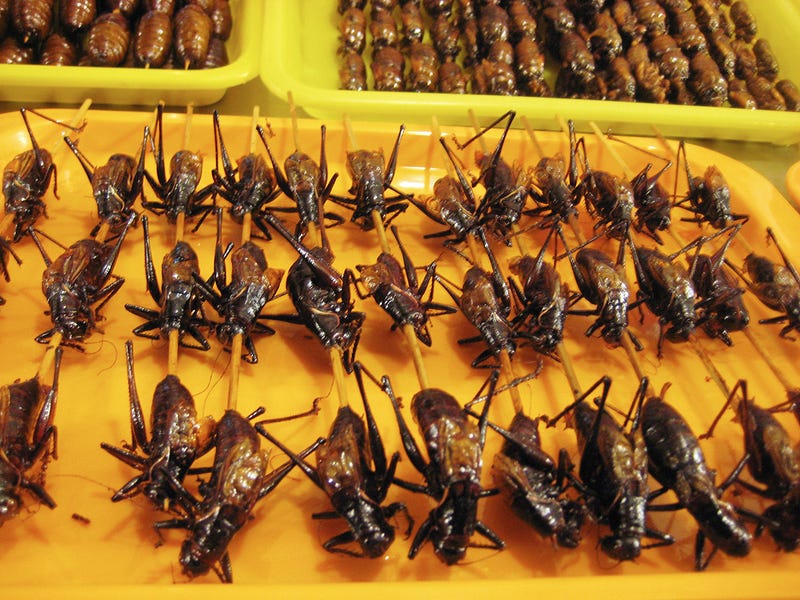The Ethical Dilemma of Eating Insects vs. Traditional Livestock
Written on
In recent years, the edible insect market has seen a surge, touted for its potential as a sustainable protein source. However, questions arise regarding whether insects can feel pain, and if so, how this affects the ethics of insect farming compared to conventional livestock farming.

The United States has witnessed a growing trend in incorporating crickets, mealworms, and other insects into various food products, from protein bars to pasta. By 2030, the insect protein industry is expected to reach $8 billion, a significant increase from under $1 billion in 2019.
For many in the West, the idea of consuming insects is unsettling, primarily due to cultural norms that associate bugs with disgust rather than dinner plates. Yet, for populations in countries like Thailand and Mexico, insects are a common and tasty treat, often seasoned or fried. There are over 1,900 known edible insect species globally, many of which have been integral to traditional diets for centuries—this practice is known as entomophagy.

Proponents of insect consumption argue that it is beneficial for both health and the environment, suggesting it could help phase out factory farming. However, scientists caution that claims may be exaggerated. A significant ethical concern arises if insects can indeed experience pain and suffering similar to larger animals.
Historically, many scientists believed insects did not feel pain, though Charles Darwin once suggested they could express emotions. Recent findings indicate that insects possess neurons akin to human nociceptors, which allow them to detect harmful stimuli. However, the debate continues regarding their capacity for emotional suffering.
One study from 2011 demonstrated that stressed bees displayed a pessimistic outlook, associating certain odors with food rewards. Bees exposed to stressful conditions reacted differently than their unshaken counterparts, suggesting they might have emotional responses. Another study indicated that bumblebees show an "optimism bias," reacting more favorably when rewarded before testing their decision-making abilities.

Further research with fruit flies revealed that they exhibit defensive behaviors in response to visual threats, suggesting a complex emotional response rather than mere instinctual reactions. These findings challenge the notion that insects are simply mechanistic beings devoid of emotional depth.
While defining emotion remains complex, evidence suggests that certain insects can experience feelings. The concern escalates when considering the sheer number of insects required to produce comparable amounts of meat to traditional livestock. For instance, one cow can yield about 4,500 hamburgers, whereas hundreds or thousands of insects may be necessary to produce just one.
Animal advocate Emilia Cameron warns that the mass killing of insects, if they suffer, could result in immense levels of animal suffering, far exceeding that of larger livestock.
Skeptics argue that insect farming conditions may not lead to suffering, noting that insects thrive in crowded and warm environments. Advocates assert that farmed insects live pleasant lives with ample resources and no natural threats.
However, research indicates that insect farming can have significant mortality rates and that harvesting methods can cause suffering. For example, crickets may be put into a freezer to induce unconsciousness before being killed, raising ethical questions about the humane treatment of these creatures.
Nonetheless, the future may hold promising alternatives. The plant-based meat market is rapidly expanding, with projections suggesting a $140 billion share in the alternative protein market within a decade. Cell-based meat, which mimics traditional meat without animal slaughter, is also gaining traction.
Despite the initial cultural aversion to eating insects among many Western consumers, plant-based options are garnering interest, presenting a potential shift away from traditional livestock and insect consumption towards more ethical alternatives.
Brian Kateman is the co-founder and president of the Reducetarian Foundation, an organization focused on reducing meat, egg, and dairy consumption for a healthier and more compassionate world. He is the editor of *The Reducetarian Cookbook (Hachette Book Group: September 18, 2018) and The Reducetarian Solution (Penguin Random House: April 18, 2017).